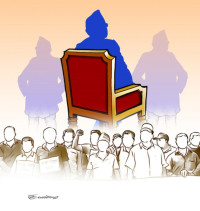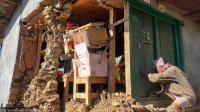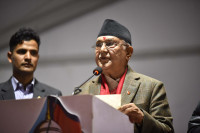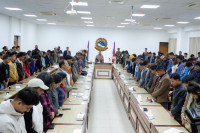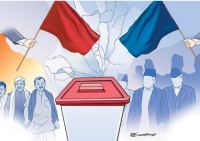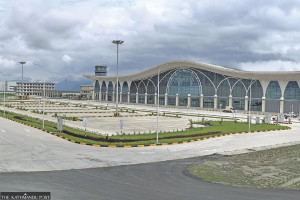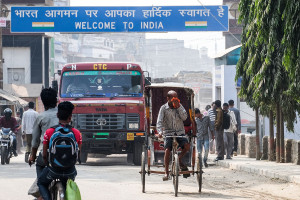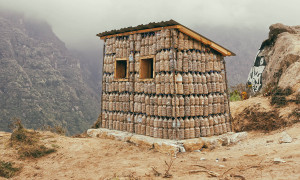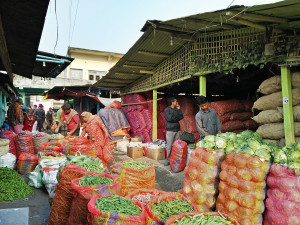Sun, Dec 21, 2025
Money
Excess baggage
The wave of domestic tourism has arrived— what are we doing about its implications?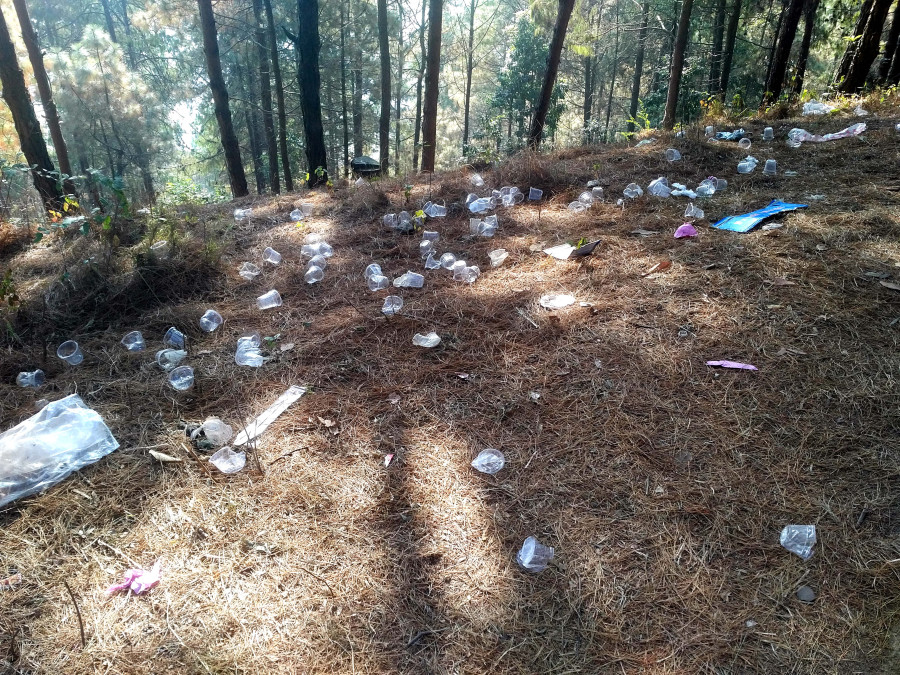
bookmark
Sujeev Shakya
Published at : January 15, 2019
Updated at : January 15, 2019 09:02
In the hills of Nepal, from East to West, apart from the streams of alcohol companies, there is one common sight, especially visible on any given Saturday: picnics. Hoards of people huddled over food and music, forming human speckles in beds of green, have become a ubiquitous sight in some of Nepal’s most commonly visited destinations. Outgoing youths who have reclaimed the Nepali picnic routine have seemingly established a general routine: get to the venue, courtesy of the party palace folks or nearby restaurants, get the food flowing, open bottles of alcohol, and then blast loud music. By the end of the day, especially as the dance numbers get louder, many of these ‘picnic enthusiasts’ are seen taking puke breaks. The most interesting aspect to these picnics is the fact that they are supposedly organised or sponsored by schools and colleges.
Students travel to these locations in college buses with institutional names clearly marked. Often, teachers accompany students in ‘supervisorial’ roles. More alarmingly, the necessity to clean up after events has not been instilled or encouraged in students. As these picnic-goers leave, the traces of their events remain, forming perpetually growing heaps of litter. Having seen a couple dozens of these picnics in the past two weeks, I have formed a dismal conclusion: when bad behaviour is concerned, there seems to be no difference between private and public school students. Both groups seem to lack education on environmentally responsible tourism.
While the fact that domestic tourism is growing is a positive step forward, we need to be careful about what kinds of values and impacts it promotes. In hotels across Nepal, we often hear of people complaining about guests who occupy a couple of rooms, drink excessively and boisterously make noise without considering how their behaviours are impacting others. Music blaring from portable speakers late into the night has become common in homestays. And, given their symbiotic relationship for many in Nepal, drinking and brawling are often common activities.
It seems to me that a popular idea of fun for domestic tourists can be explained with four Ds: drink, dinner, dance and dang dung (meaning commotion caused by fights). This phenomenon extends beyond our borders. Social media has documented many accounts of Nepalis engaging in the ‘4Ds’ in parties across the world. As the government touts its ‘Visit Nepal 2020’ as a turnaround year for tourism, it is important to promote responsible forms of domestic travel.
At Namo Boudha Resort, a well-maintained beautiful place built with Nepali style architecture, guests enjoy the tranquility and the amazing view of the hills and mountains along with just being with nature. But each Saturday, and even other days of the week, the noisy Nepali picnic folks blast loud music, making people wonder: who are these people who are trying to pose a big challenge to beautiful places built in Nepal? In a country where one third of the elected representatives are business people, mostly in the business of construction, they are like to ensure that they do their business well. So the easiest way to earn quick money is to find government land under the purview of local governments, take on a lease (often in the name of a family member) and run these picnic spots. Of course, a few of the other family members will be allowed to host stalls selling local items and branded alcohol to ensure that the ‘picnic spirit’ is not dampened. And of course, there are loud speakers and microphones available for rent.
When resort or hotel owners and residents living nearby raise their complaints about the errant merrymakers, they are either politely shooed away or threatened. But surely, when you are a business person with a political position, you can leverage the power to follow through on any threat.
Attracting international tourists is not easy and therefore, the focus should also be on domestic tourists—especially as we have demonstrated our spending capacities. But it is important for domestic tourism to move towards environmentally responsible and socially aware forms of travel and leisure.
In 2013, the Nepal Tourism Board highlighted that 40 percent of tourists were domestic. There is clearly a growing and thriving market for domestic travel. In India, for a large country of 1.3 billion people, it received only 10 million international tourists. However, their domestic tourism numbers were 1.6 billion. They are so happy with domestic tourists, their approach to tourism doesn’t compulsively focus on international tourists, who have different objective, demands and preferences. This inward focus on tourism is lacking in Nepal.
But congruently, if the attention shifts towards domestic tourism, stakeholders should make an effort to educate and engage local travellers about the necessity of leaving places the way they were found. While ‘eco-friendly’ and ‘responsible tourism’ is a key point of dialogue in other countries, Nepal’s education does not seem to highlight their importance. A key contributing factor in neglecting this form of education is that tourism has always adopted an outward focus. Public imagination and governmental understandings of tourists are captured by images of outsiders. The tourism industry at large seems to be defined from the outside-looking-in. Because of these dominant narratives, the need to educate locals about responsible forms of tourism never seemed to hold much importance.
As the profile of the typical ‘tourist in Nepal’ adopts more of a local shift, the glaring need for these forms of education has been highlighted. In this pivotal juncture, it is time to engage in dialogue about how domestic tourism needs to be responsible, environmentally-conscious and socially aware. Instilling these values will require a protracted educational approach. But perhaps a good place to start is at the picnic: Teachers should expect students on school-sponsored events to clean up after themselves.
The author tweets at @sujeevshakya.
Most Read from Money
Editor's Picks
E-PAPER | December 21, 2025
×




 13.12°C Kathmandu
13.12°C Kathmandu
